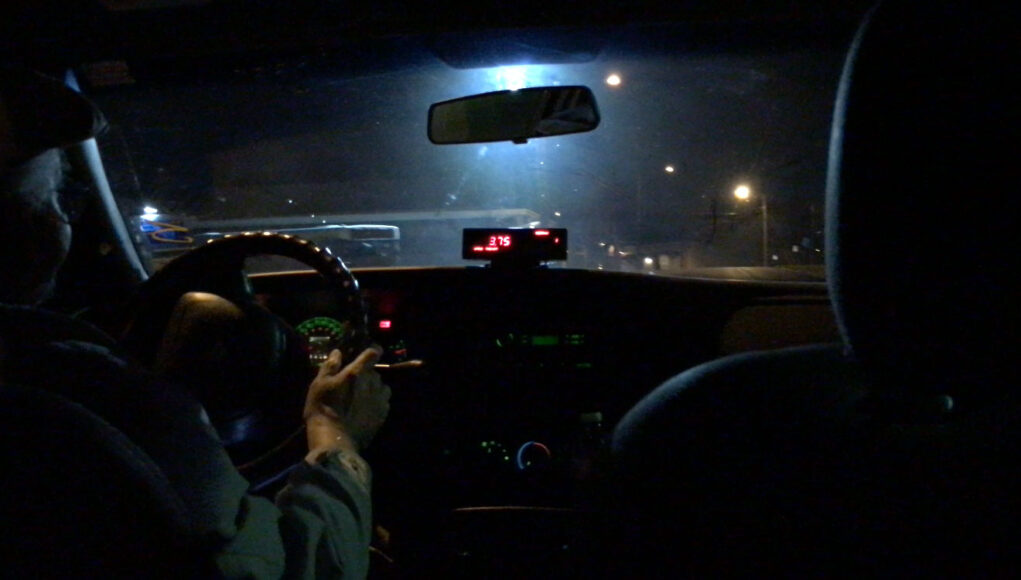Update: The Uber/Lyft/TNC ordinance adopting Chapter 102-88 passed on February 14th, 2017 – unanimously.
It seems everyone seems to be begging for the sweet relief and convenience of hailing apps like Uber and Lyft. Well, perhaps not everyone. The taxi and shuttle service companies in town are beginning to push back against such apps.
According to The Shreveport Times, the opposition statements, which were voiced in a November Public Safety Committee meeting, ranged from “concern about the service, and the possibility for a disparity between the standards Uber would be held to and those for Shreveport taxi and shuttle services” to permits and fees imposed on vehicle for hire services and making sure they’re imposed on the new services. (Watch the meeting video by KSLA)
Currently, New York City doesn’t force hailing apps to have city-issued taxi medallions. It’s resulted in lawsuits, of course.
A cab company in Philadelphia filed a lawsuit against Uber last year, alleging that the company ruined their business. In the same year, Uber faced another lawsuit in San Francisco for pricing damages and was sued for impolite behavior towards customers, stemming from an incident involving a drunk driver employed by the firm.
The City of Austin passed a requirement for fingerprint background checks for Uber and Lyft drivers which eventually drove the services out of town.
New Orleans’ Transportation Committee delivered a scathing report about Uber and Lyft skirting city regulations.
Now, I can totally get behind making sure standards are upheld and the idea that fees, permits, and background checks should be equally required (as they are in New York), but I also believe in a free market approach – especially when it adds convenience, lowers price, and gives opportunities to self employed individuals. However, the public has decided repeatedly in cities across the country that hailing apps are their preferred service – which is why people hire them even when surge pricing is in effect.

With that, I want to to dive right in into one aspect of the argument made at the November Shreveport Public Safety Commission meeting: that app-hailed drivers should be held to the same standard as cabs in Shreveport.
I take a taxi almost every week these days. I live downtown and dislike driving a lot. So I looked in our code of ordinances in Chapter 102 to find out what standards exist today in order to compare them with my personal experiences. Here’s what I came up with. Vehicles for hire must:
- Register with the city, obtain a vehicle-for-hire certificate (as provided in R.S. 45:200.2), a vehicle inspection ($25), and permitting fee ($150) per vehicle per year paid to the Shreveport Police Department.
- Display a current inspection sticker
- Be driven by drivers with a vehicle-for-hire license and that a driver submit an application ($24) to Shreveport Police and get fingerprinted ($26).
- Carry insurance on the vehicle and the city must be named as an additional insured party. Coverage must include protection for third party injury with a minimum of $25,000.00 for bodily injury for any one person in any accident, $50,000.00 for bodily injury in any one accident and $25,000.00 for property liability.
- Display a rate card with maximum rates determined by the city
- Drive a customer anywhere within 10 miles of the city limits
- Have functioning seat belts for all passengers
- Not accost someone to hire them
That’s basically it. There aren’t really any other standards of service to which a taxi must be held in terms of comfort, convenience, or interaction with a passenger – the very things that hailing apps excel at and that customers want.
There are other, more specific rules regarding vehicles for hire, but they are mostly about free hotel and casino shuttles not competing with taxicab services or taxicabs not competing with public transit.
If there’s anything surprising to me about our code of ordinances regarding taxicabs it’s that, while there are a multitude of rules for drivers and taxicab owners, there are very few consumer protections. There’s really no effort to guide taxicab companies to provide better quality of service. Even more surprising is how local taxicab companies don’t address these issues themselves through best practices to compete against one another. It seems as though an air of mediocrity has settled over the cab services in the community.
The reality is that the reason people gravitate to Uber and Lyft extend beyond convenience and price, which are admittedly attractive selling points. Have you ridden in a local taxicab recently? Yes, a select few of them are nice – usually owned by the driver in those cases – but the vast majority of them are ancient clunkers like the immortal Ford Crown Vic.
I’ve ridden in taxis without decent seat cushions, dirty floors, missing door hardware, loud radios, smoking drivers, drivers who speed, drivers who shamed me for not carrying cash despite there being a sticker on the window indicating cards are accepted. On more than one occasion, I’ve had a driver offer to take me to an ATM while the meter was running in order to not take a credit card. It was a racket.
I will say that I don’t have terrible experiences all the time. One local company, Checker Cab, has provided me with consistently swift service, arrival estimates, and will text me with my driver’s name and phone number ahead of time. However, even with this great front-end experience, the vehicle comfort and driver experience are hit and miss.
Compare that with Uber and Lyft who require cars be a certain age, be scent-free, that drivers be free of convictions of certain crimes, have online training courses, and rating systems for drivers that allow for constructive feedback. Add in the convenience and price and, from a consumer perspective, there’s no comparison whatsoever.
 So, it is my opinion that if taxicab owners are going to voice concern about the city considering ride share and hailing apps – which they are right to do in some cases – they should also work on upping their game to compete with the convenience and service provided by the apps they seem fearful of. For starters, they can use newer vehicles that are cleaned, maintained, and updated to use payment methods from this millennium. They could then turn to training their drivers in taxicab etiquette and route knowledge.
So, it is my opinion that if taxicab owners are going to voice concern about the city considering ride share and hailing apps – which they are right to do in some cases – they should also work on upping their game to compete with the convenience and service provided by the apps they seem fearful of. For starters, they can use newer vehicles that are cleaned, maintained, and updated to use payment methods from this millennium. They could then turn to training their drivers in taxicab etiquette and route knowledge.
A taxi company could even partner with an app like HailO, which works with existing taxicab fleets to provide app hailing for their service, or Verifone’s Taxi Point of Sale system Way2Ride, which allows customers to pay for a ride through their phone after hailing using more traditional means. But, at the end of the day, customers want an app that they can use between cities seamlessly – whether they’re coming here for the Independence Bowl or the Red River Revel or a Jack White concert.
Beyond best practices executed by taxicab companies, our city could also use with better consumer protections afforded riders in other cities. A taxicab bill of rights, as it were. These rights could include the right to:
- Pay for your ride with credit/debit card (with no minimum fee)
- Go to any destination in the city limits*
- Direct the route taken: The most direct route or one of your choice;*
- A safe and courteous driver who obeys all traffic laws;
- A knowledgeable driver who speaks English and knows City geography;
- Air conditioning or heat on request;
- A noise free trip: no horn honking or radio;
- Clean air. Smoke and scent-free air;
- Working seat belts for all passengers;*
- A clean taxicab: interior, exterior and partition;
- Accomodate a service animal;
- A driver who does not use a cell phone while driving (hand-held or hands free);
- Decline to tip for poor service.

These rights were ripped directly from the NYC Taxi & Limousine Commission website. (Rights marked with an asterisk * are rights we already have in Shreveport).
While I’ve always had a seat belt, I can’t recall ever having seen a rate card inside a Shreveport cab, and have been given verbal grief about how far I was taking someone out of their preferred area.
All of these rights and more (like anti-discrimination rules) are guaranteed by Uber and Lyft today.
Beyond the difference in standard of service for drivers and passengers provided by hailing apps, the reality is that the city code’s rules already include car services like Uber and Lyft given a laymen’s interpretation of the current code.
Chapter 102, Section 102-3 states “No persons shall … hold themselves out as a taxicab … or for-hire automobile company or operator, or represent themselves to be such by means of advertisement, signs, trade names or otherwise, unless they have previously complied with the requirements, conditions and regulations prescribed by this chapter.”
So, in essence, Uber and Lyft are already covered under current rules. Enforcement is a different issue to discuss – one that will take some deeper thinking. In the meantime, Uber (and perhaps, eventually, Lyft) will come to Shreveport. Assuming that Uber complies with local rules, taxicabs still have a huge hurdle involving passenger comfort and experience that they shouldn’t be ignoring. I suggest they use their time working to up their game in order to compete in the market.
Post Script Thought: A final, tangentially related note, our Chapter 102 doesn’t include stipulations for pedicabs, which are almost certainly going to become a thing here as they have in New Orleans, Austin, and elsewhere as our downtown grows. Something to think about if we’re going to open 102 for changes.


